MES Components: Inventory and Material Management
What is Inventory and Material Management in MES?
Inventory and Material Management within MES goes beyond basic stock keeping—it is a dynamic, real-time system that provides visibility and control over every stage of material flow. From the moment raw materials arrive at a factory to the point finished goods are shipped to customers, MES manages every transaction, transfer, and transformation of materials. This level of control is particularly vital in industries like pharmaceuticals, food and beverage, and electronics manufacturing, where compliance, safety, and precision are non-negotiable.
- Receiving Raw Materials: Ensures quality checks are performed, and materials are logged into the system immediately upon arrival.
- Storing Materials: Organizes warehouse layouts, optimizes space, and reduces handling times.
- Material Usage: Tracks consumption on the shop floor to prevent overuse or waste.
- WIP Management: Monitors materials as they move between production stages, ensuring no bottlenecks or misplacements.
- Finished Goods Inventory: Keeps real-time updates of ready-to-ship items, improving order fulfillment accuracy.
Key Functions of Inventory and Material Management in MES
1. Real-Time Material Tracking
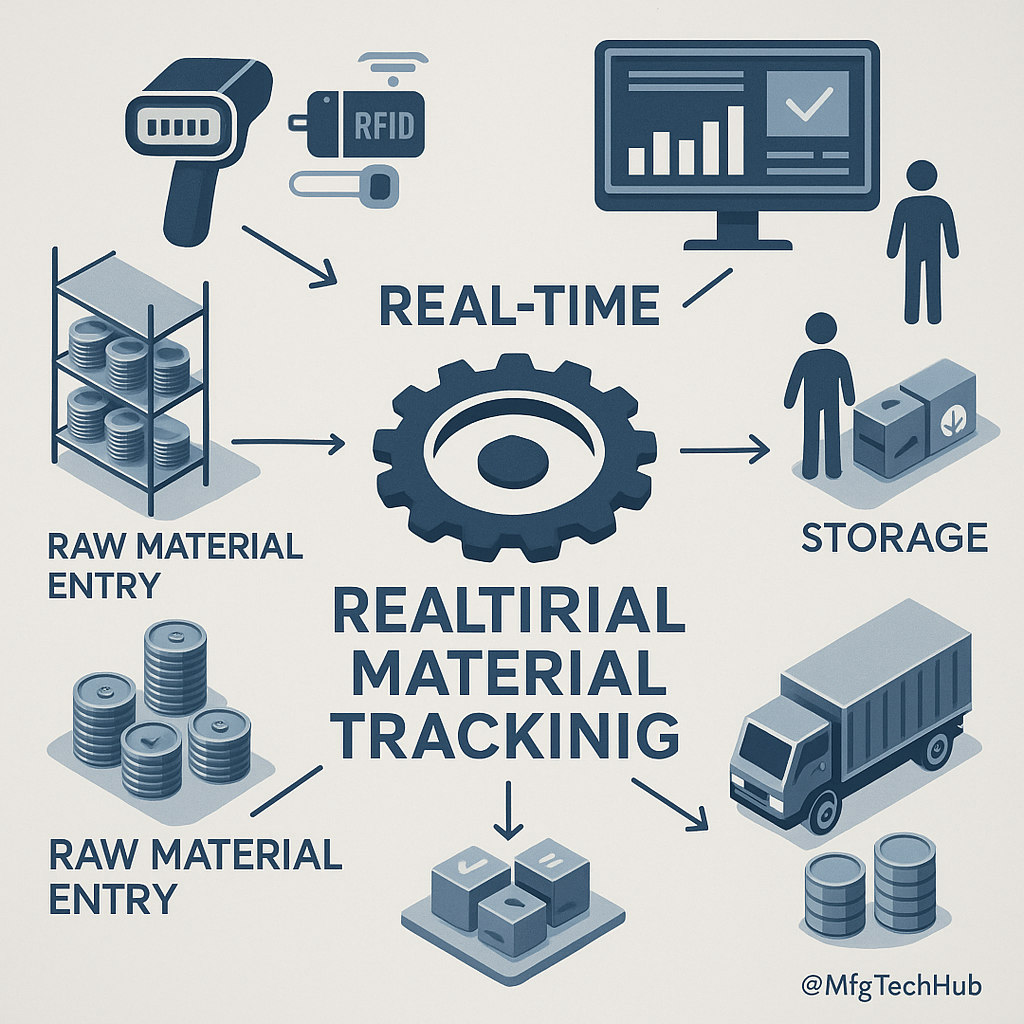
With MES, materials are no longer hidden in warehouses or waiting to be discovered during stock audits. Instead, they are constantly visible through technologies such as RFID tags, barcode scanning, and IoT-enabled sensors. Real-time material tracking allows managers to know exactly what is in stock, where it is located, and how it is being used.
This feature prevents sudden shortages, overstocking, or lost items. For instance, a food manufacturer can track batches of perishable ingredients, ensuring older stock is used first and preventing costly waste due to expiry.
2. Material Allocation
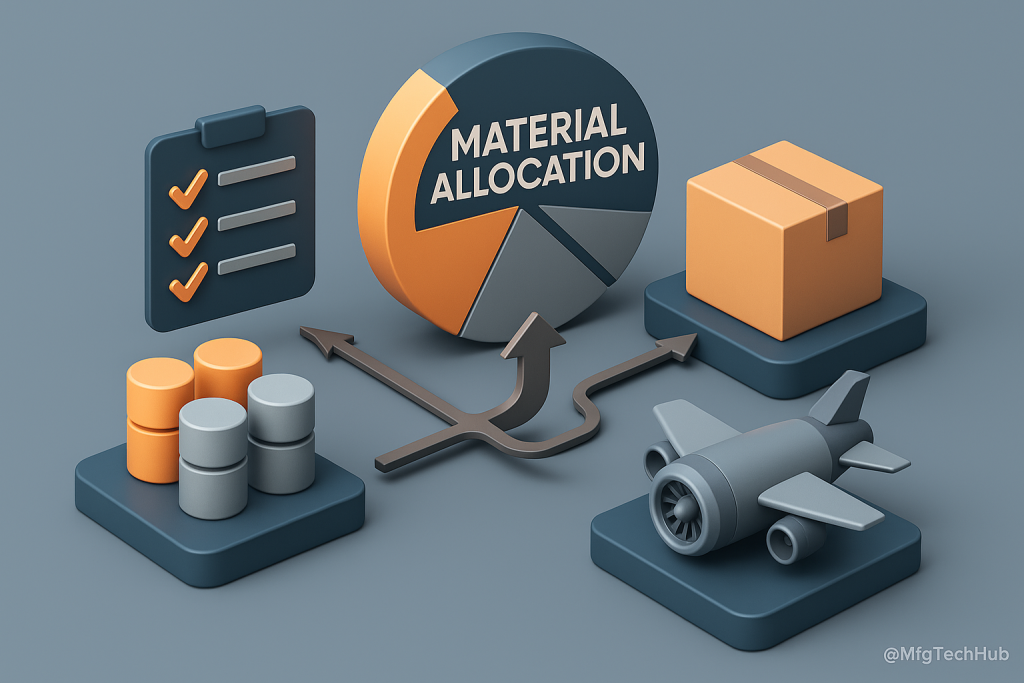
Material allocation ensures that the right materials are assigned to the right jobs at the right time. MES systems intelligently allocate materials based on availability, quality levels, and production priorities. This prevents critical components from being misused or allocated to low-priority tasks.
For example, in aerospace manufacturing, high-grade steel may be allocated only to specific engine components, while secondary parts receive standard materials. This smart allocation minimizes waste, improves production quality, and supports lean manufacturing practices.
3. Inventory Optimization
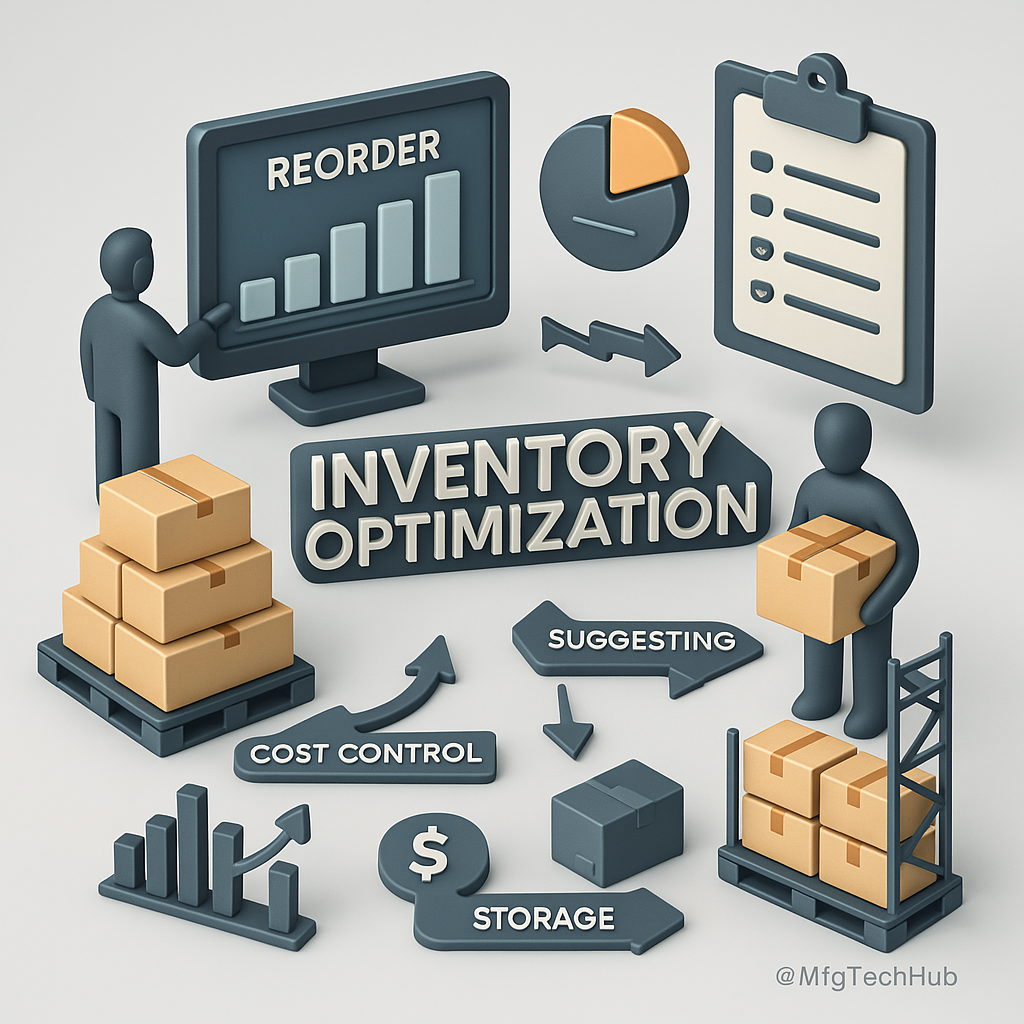
MES continuously monitors stock levels and can generate automated reorder alerts, consumption reports, and optimization suggestions. Instead of managers reacting to shortages, MES helps them anticipate needs and balance supply with demand.
A packaging manufacturer, for instance, can automatically reorder corrugated boxes when stock falls below a threshold, ensuring smooth operations without tying up capital in unnecessary inventory.
4. Work-in-Progress (WIP) Tracking
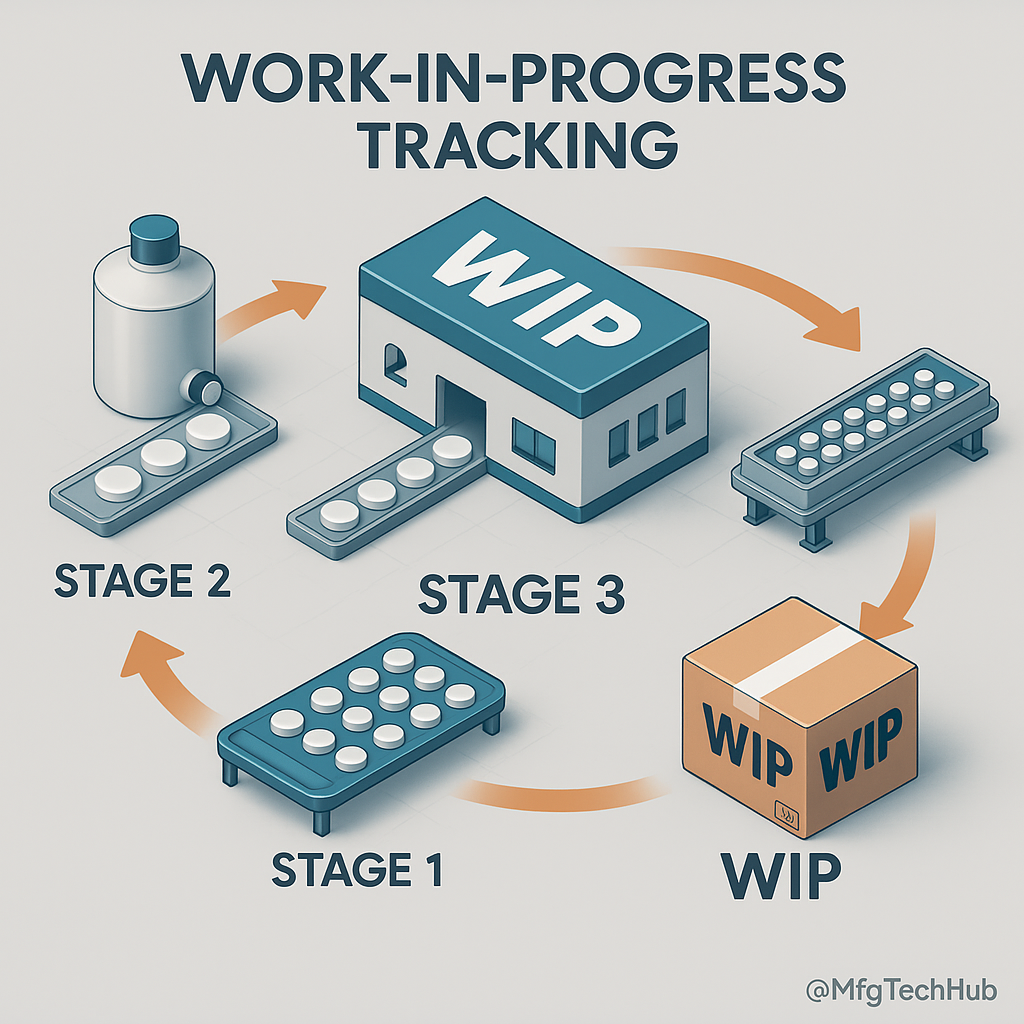
WIP tracking gives managers visibility over partially finished goods moving across production lines. MES can show which batch is at which stage, whether there are delays, and how long each stage takes.
In pharmaceutical production, MES can track tablet batches from mixing to coating to packaging, helping identify bottlenecks and ensuring compliance with strict regulatory timelines.
5. Material Traceability
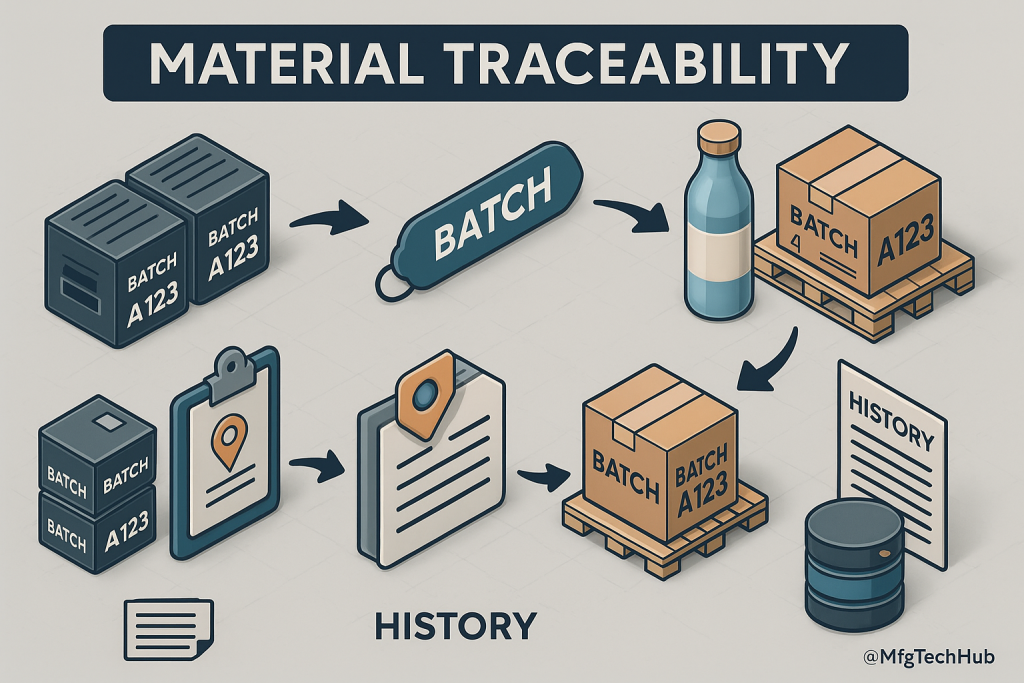
One of the most critical aspects of MES inventory management is traceability. MES records detailed material histories, including batch numbers, supplier origins, and inspection results. This not only ensures compliance with international quality standards but also enables quick action during recalls.
For example, a beverage company can instantly trace defective bottle batches back to the supplier and isolate only affected stock, avoiding large-scale recalls that could damage brand reputation.
6. Kanban and JIT (Just-in-Time) Support
MES integrates seamlessly with lean manufacturing methods such as Kanban and Just-in-Time (JIT). These methods ensure materials arrive exactly when needed, minimizing storage requirements and keeping production lines flowing smoothly.
In automotive manufacturing, for example, MES can ensure engine parts arrive at assembly stations exactly when required, reducing inventory piles while keeping production efficient.
7. Storage Location Management
MES also supports advanced warehouse and storage management. By assigning storage zones and using RFID tracking, MES optimizes warehouse space utilization. This leads to faster material retrieval, reduced handling times, and better inventory audits.
A logistics-heavy electronics plant may rely on MES to coordinate hundreds of small components, ensuring they are always stored and retrieved efficiently for assembly.
Benefits of Inventory and Material Management in MES
When implemented effectively, this MES component delivers multiple advantages:
- Reduced Costs: Eliminates waste, lowers storage expenses, and optimizes procurement.
- Improved Efficiency: Ensures materials are available at the right time to prevent delays.
- Enhanced Traceability: Facilitates compliance with regulatory requirements such as ISO or FDA standards.
- Real-Time Insights: Empowers managers with live dashboards and reporting tools.
- Higher Customer Satisfaction: Enables on-time deliveries and improves service quality.
Challenges in Inventory and Material Management
Despite its benefits, implementing MES inventory management is not without challenges. These include:
- Complex Integration: MES must be synchronized with ERP, SCM, and legacy systems, which can be technically demanding.
- Data Accuracy: MES relies on precise data input—errors at the entry level can lead to flawed outputs.
- Resistance to Automation: Employees may resist changes in traditional processes and require training.
- High Initial Costs: Hardware, software, and training investments may be significant before ROI is realized.
Real-Life Example: Electronics Manufacturing
Consider an electronics manufacturer producing smartphones. MES manages chips, screens, and casings across different assembly lines. By using real-time tracking, the system ensures that critical components like processors are always available during assembly, while also enforcing strict supplier traceability for compliance.
Defective screens can be traced back to their suppliers within minutes, minimizing delays. Just-in-time delivery ensures storage costs remain low while production lines keep running smoothly, ultimately boosting customer satisfaction through faster deliveries and consistent quality.
Conclusion
Inventory and Material Management within MES is more than an operational necessity—it is a strategic enabler for modern manufacturing. By embracing real-time tracking, allocation, optimization, traceability, and lean methodologies, companies gain tighter control over resources, achieve higher productivity, and respond swiftly to market demands. As industries evolve under Industry 4.0, MES-driven material management will continue to be a key driver of efficiency, compliance, and competitiveness.
